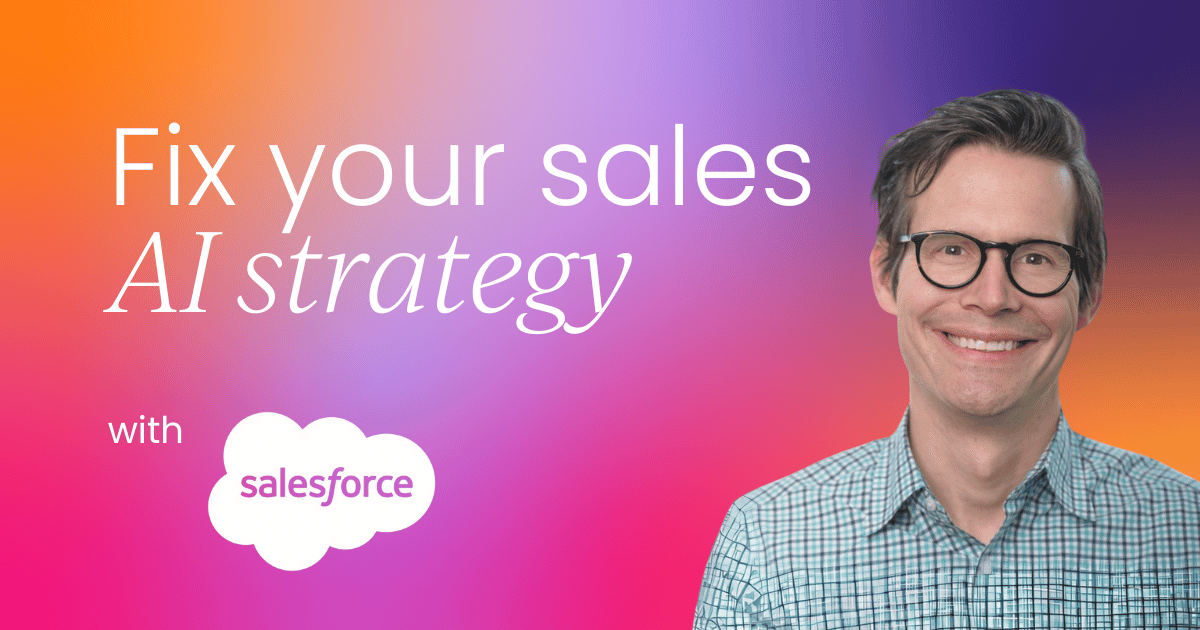What makes scaling a sales organization from zero to acquisition fundamentally different from driving growth at a $38 billion enterprise? After experiencing both journeys firsthand, I can tell you: less than you might think.
As the current SVP of Product in Salesforce's Sales Cloud organization, and having previously founded and grown Spiff from zero ARR through its acquisition by Salesforce, I've had the unique opportunity to see sales acceleration from both ends.
The tools and scale may change, but the core principles of building and leading successful sales organizations remain surprisingly consistent – even as we navigate the new frontiers of data and AI.
Throughout my career, I've worn various hats – startup founder, acting CRO, and now leading product strategy at one of the world's largest software companies. This journey has given me a unique perspective on what truly drives sales success, whether you're a scrappy startup or an established enterprise.
So in this article, I'll share the key insights I've gained from both worlds, focusing on the strategies and principles that remain constant regardless of scale, while highlighting how modern tools and technologies can accelerate your growth.
Whether you're building your sales organization from the ground up or looking to optimize an established team, these lessons will help you navigate the increasingly complex landscape of modern sales leadership.
Let’s dive straight in.
Building a high-performance sales team
At Spiff, I was closely involved in hiring all 300 team members. While I tried to be a fairly democratic CEO, I was steadfast on three non-negotiable hiring requirements:
1. Experience working with top-notch teams
2. Longevity in previous roles
3. Successful blind reference checks
These align closely with what we look for at Salesforce, where we emphasize track record and commitment. One thing I learned at both organizations: while you can train people on many aspects of their role, you can't instill drive and passion - these need to be inherent.
I love how my former CLO at Spiff, Matt Gar, described what we looked for: "Ivy League street fighters." It's an unusual phrase, but it perfectly captures what makes a great sales professional – the intelligence to problem-solve creatively combined with the resilience to handle the daily grind of sales.
Another crucial learning: some of our best hires at Spiff came from within our industry. They understood the space immediately, could articulate our differentiation clearly (often because they'd previously sold against us), and hit the ground running. While some companies succeed with a "not invented here" mentality, I've found that relevant industry experience can be invaluable.



 6 min read
6 min read
 Follow us on LinkedIn
Follow us on LinkedIn




